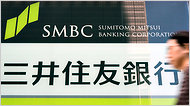 Ariana Lindquist/Bloomberg NewsThe Gavilon Grain dock at the Port of Duluth-Superior in Superior, Wis., in January.
Ariana Lindquist/Bloomberg NewsThe Gavilon Grain dock at the Port of Duluth-Superior in Superior, Wis., in January.
TOKYO — Marubeni, the Japanese trading house, said on Tuesday that it would buy the American grain merchant Gavilon Group for $3.6 billion, as it looks to ship American agricultural products to fast-growing Asian markets.
Buoyed by a strong yen, Japanese companies have been spending billions of dollars in recent years to secure access to resources like minerals and natural gas, activity that has helped fuel a global commodities boom.
The Gavilon acquisition would allow Marubeni to become a top global player in grains, handling over 55 million tons annually, according to a statement from the Japanese company. The deal for Gavilon would also give Tokyo-based Marubeni far greater control of supply and distribution in the United States, the world’s largest agricultural exporter.
“As part of a larger trading organization, Gavilon will be well-positioned to more efficiently connect supply with growing global demand,” Greg Heckman, president and chief executive of Gavilon, said in a statement.
Gavilon, based in Omaha, Neb., is the third-biggest grain distributor and trader in the United States, behind Archer Daniels Midland and Cargill. The company has been expanding its global presence, acquiring the DeBruce Companies in 2011 to bolster assets in the United States and Mexico. In a separate statement, Orascom Construction Industries of Egypt said it was selling its 16.8 percent stake in Gavilon to Marubeni for $605 million.
With Gavilon, Marubeni gains critical exposure to American agriculture market, securing supplies for its home market.
Japan is the largest grain importer in the world, relying on imports for 60 percent of its food in terms of calories.
Marubeni also hopes to position itself to supply growing demand in Asia, especially in China. As it continues to industrialize, China also faces shrinking farmland and other production constraints.
“We expect world grain trade volume to continue to grow on the back of robust demand in China and other emerging countries,” Marubeni said in a statement.
Article source: http://dealbook.nytimes.com/2012/05/29/marubeni-of-japan-to-buy-gavilon-for-3-6-billion/?partner=rss&emc=rss
